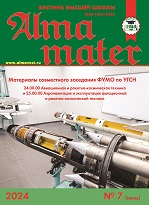UDC 378:81`24
Tatiana A. Dmitrenko, Dr. Sci. (Pedagogy), Professor, Academician of International Teacher’s Training Academy of Science (MANPO), Moscow State Pedagogical University, e-mail: dmit.t.a@mail.ru; Author ID (RSCI): 312293; Researcher ID (WoS): A-6876-2017; Author ID (Scopus): 8454713300; https://orcid.org/0000-0001-8716-6772
Introduction: The article analyzes the problem associated with the emergence of digital tools in the digital era, which has led to the emergence of a new didactic tool for teachers to organize the educational process, which has improved the quality of teaching a foreign language. The purpose of the article is to assess the possibilities and ways to improve the educational process in the digital era with the help of modern educational and methodological support, including digital tools.
Materials and methods of research: methods of comparison and analysis of teaching practice. The research materials were the results of a survey of foreign language teachers with experience in using digital technologies.
Research results: the prospect of using modern educational and methodological support for the educational process in the era of digitalization of society is substantiated; The content of the concepts “digital educational environment”, “digital tools”, “digital technologies” and “digital educational resources” is revealed. As a result of the diagnosis, an increase in the level of development of communication skills in students was revealed on the basis of modern educational and methodological support.
Discussion and conclusion: analysis of the results of the study showed a positive impact on the development of foreign language communicative competence in students. It is proposed to actively use digital tools that open wide access to high-quality educational digital content and bring the language training of future specialists in the field of intercultural contacts to a new level of quality.
Keywords: foreign language teaching, digital technologies, digital environment, digital content, didactic potential
References
1. Bartosh, D.K., Galskova, N.D., Kharlamova, M.V. (2017). Electronic technologies in the system of teaching foreign languages: theory and practice: textbook. Moscow: MGPU. (In Rus.)
2. Dmitrenko, T.A. (2020). Modern teaching technologies in the higher education system: textbook. Moscow: MPGU. (In Rus.)
3. Panyukova, S.V. (2020). Digital tools and services in the work of a teacher. Educational and methodological manual. Moscow: Pro-Press Publishing House. (In Rus.)
4. Sysoev, P.V. (2023) Artificial intelligence technologies in foreign language teaching. Foreign languages at school. 2023. No. 3. P. 6–17.
5. Sysoev, P.V. Filatov, E.M. (2023). Chatbots in teaching a foreign language: advantages and controversial issues. Vestnik of Tambov University. Series: Humanities. Vol. 28. No. 1. P. 50-56. DOI: 10.20310/1810-0201-2023-28-1-50-56
6. Alkheshnam, A. (2012) Intercultural competence: Components and measurement (Dосtoral dissertation). Surrey, UK: University of Surrey.
7. Calderón, I.D. (2018). Language didactics and communication: Research field and teacher training. Praxis & Saber. 2018. Vol. 9 (21). P. 151–178.
8. Dmitrenko, T.A., Kadilina, O.A. (2020). Profession-oriented training of foreign language teachers in modern conditions. Training, Language and Culture, 4 (1): 8–21.
9. Freeman, D. (2016) Educating second language teachers. Oxford, UK: Oxford University Press.
10. Liddicoat, A.J., Scarino, A. (2013) Intercultural language teaching and learning. Chichester, UK: John Wiley.
11. Spector, J.M. & SLFG (The Smart Learning Futures Group) Smart Learn. Environ. (2018). 5: 5. https://doi.org/10.1186/s40561-018-0054-1
12. Uskov, V.L., Bakken, J.P., Pandey, A. (2015) The Ontology of Next Generation Smart Classrooms. In: Uskov, L.V., Howlett, R., Jain, L. (eds) Smart Education and Smart e-Learning. Smart Innovation, Systems and Technologies. Vol. 41. Springer, Cham. 3–14.
13. Voevoda, E., Kostikova, L., Makhmutova, E. (2019). Intercultural citizenship of university students: self-assessment and peer assessment: 6th SWS International Scientific Conferences on social sciences 2019. Conference proceedings, 255-262.
14. Voevoda, E.V. (2020). Intercultural communication in multicultural education space. Training, Language and Culture, 4(2), 11-20.
15. Zhu, Z.T., Yu, M.H. & Riezebos, P. (2016) A research framework of smart education Smart Learn. Environ. 3: 4. https://doi.org/10.1186/s40561-016-0026-2











.png)






